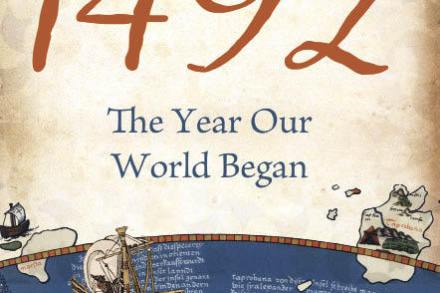What’s in a date?
Felipe Fernández-Armesto has a grand idea. Felipe Fernández-Armesto has a grand idea. After the formation of separate continents about 150 million years ago, the world’s ‘cultures’ became progressively more ‘sundered’ and its ecosystems more divergent. Then, ‘with extraordinary suddenness’, in 1492 this long-standing pattern ‘went into reverse’: divergence ceased and ‘a new convergent era of the history of the planet began’. Historians in the West have found it useful to break up the past into rough-and-ready segments — pre-history, followed by ancient, medieval and modern history — without jettisoning the understanding that history is seamless, a story of change and continuity whose events have both distant and immediate causes and














